We review the indie film Rain Town, starring BAZAAR Women Of The Year 2022 recipient, Susan Lankester in her best role yet.
Photos courtesy of Current Pictures.
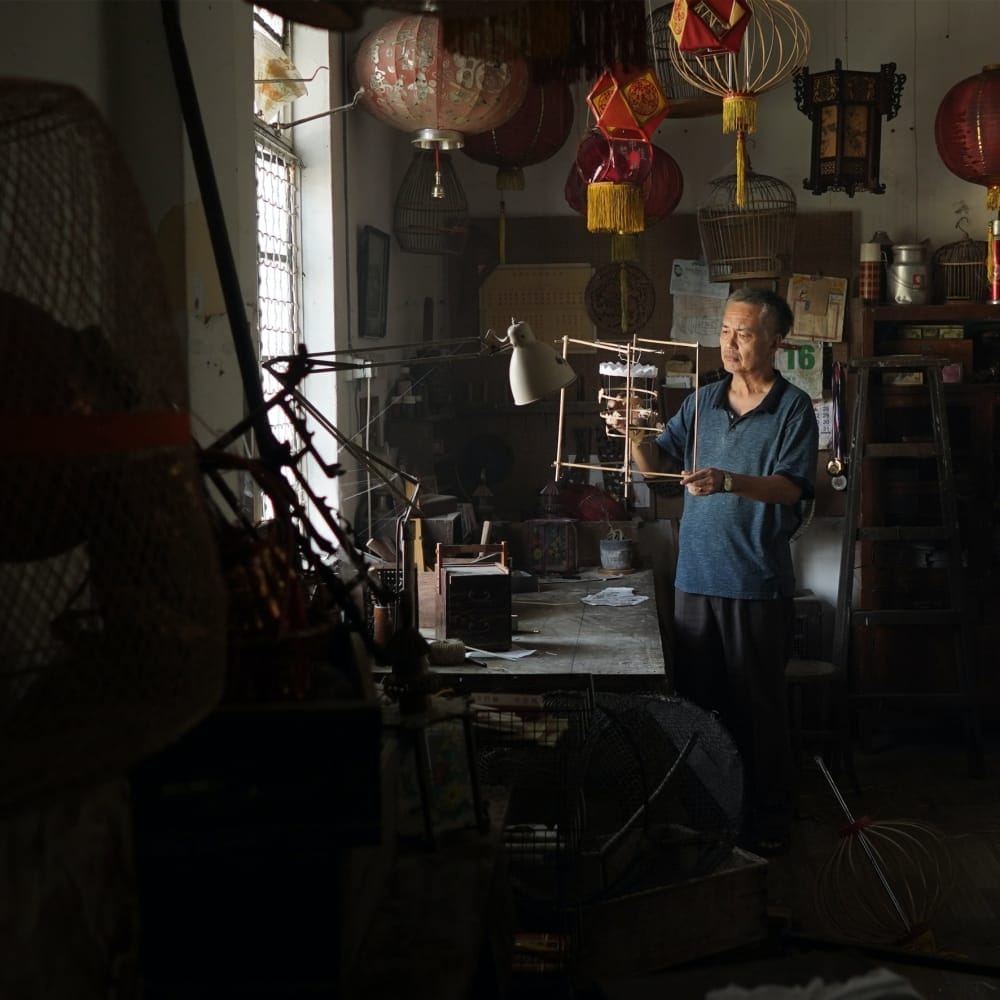
Chew Kin Wah as Mr. Choo in RAIN TOWN.
A show of hands anyone who grew up with parents wanting them to be doctors, engineers, lawyers or accountants, when you were instead dreaming of a more artistic career? Say, an actor, musician, writer, or, erm, the editor of a fashion magazine?
Such is the path of most creative Malaysians, or even Asians for that matter—then, now and maybe still for years to come. It’s almost like a rite of passage for artistic types, especially those growing up within an education system that disproportionately value sciences over the arts. It’s a Malaysian experience that we very rarely, if ever, see depicted on the big screen.
“A Simple Story”

Director Tunku Mona Riza
Rain Town, from director Tunku Mona Riza, aims to examine this shared experience and the family dynamics resulting from it. Throughout its promotion, the cast and director would remind us that Rain Town is just a “simple story”, as if wary that we might be underwhelmed with what it has to offer. To be fair, it is something of an anomaly. After all, for decades now, the Malaysian movie landscape has been dominated by bombastic box office fodder fuelled by horror, comedy and high octane action. But there are no CGI, slapsticks or car chases in Rain Town. And the ghosts here are metaphorical, not literal. It’s a straightforward family drama that goes back to the fundamentals of film-making: storytelling. More specifically, the telling of a Malaysian story, one that many of us can actually relate to. Finally.
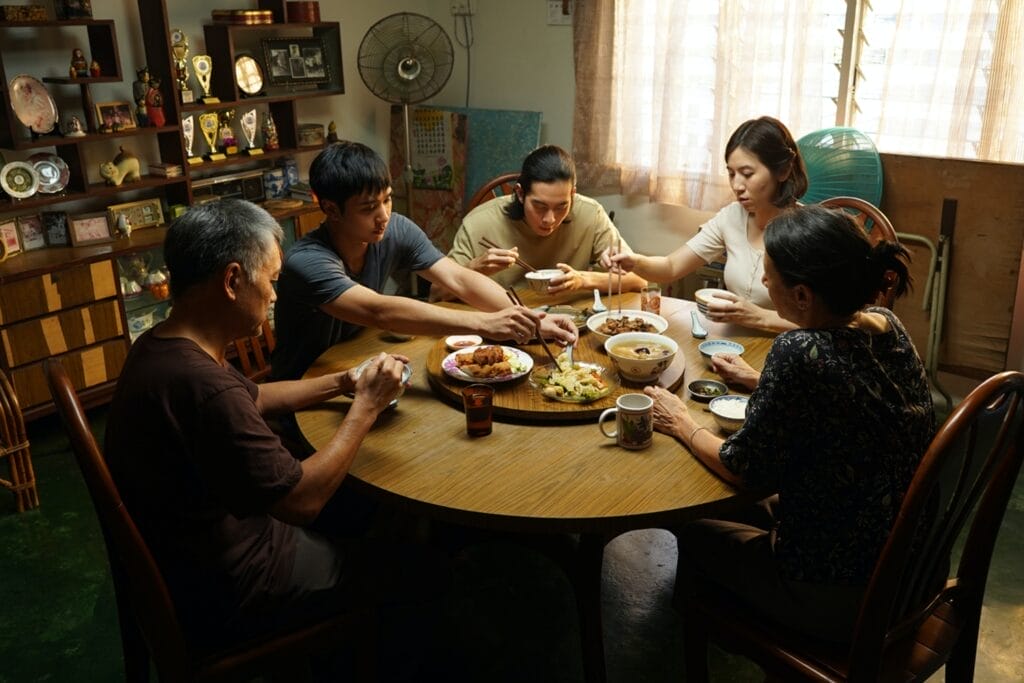
The antagonist of the story is Mr. Choo (Chew Kin Wah), the stubborn father who believes that he knows what’s best for his children, from influencing the decision of their careers to the potential spouse that her daughter should marry. And we know fathers like Choo—we know that deep down he means well and only wants the best for his family. And he isn’t a monster: Choo is obviously a character with heart, but the problem is it’s his head that he listens to. So his tunnel vision disregards any emotional repercussions felt by his wife and children. There were moments throughout the film when you can hear the audience collectively groan in frustration when Choo tries to justify his decisions. Because we wanted to slap or strangle some sense into him, which speaks to Chew Kin Wah’s brilliant portrayal of this patriarchal figure.

Fabian Loo as wannabe musician Isaac.
Then we have Isaac (an exceptional turn from Fabian Loo) who as the eldest of three, bears the burden of responsibility, the one who has to be a prime example to his siblings. And yes, he’s a doctor, because his father wants him to be one, in spite of Isaac’s dreams of becoming a musician/songwriter. You can feel that weight on Loo as he inhabits his character, and how he’s so much lighter when Isaac indulges in his music. Then when that music is denied, there is this palpable helplessness bubbling under his skin, raging against the inner turmoil of wanting to be his own man. You feel for the guy.
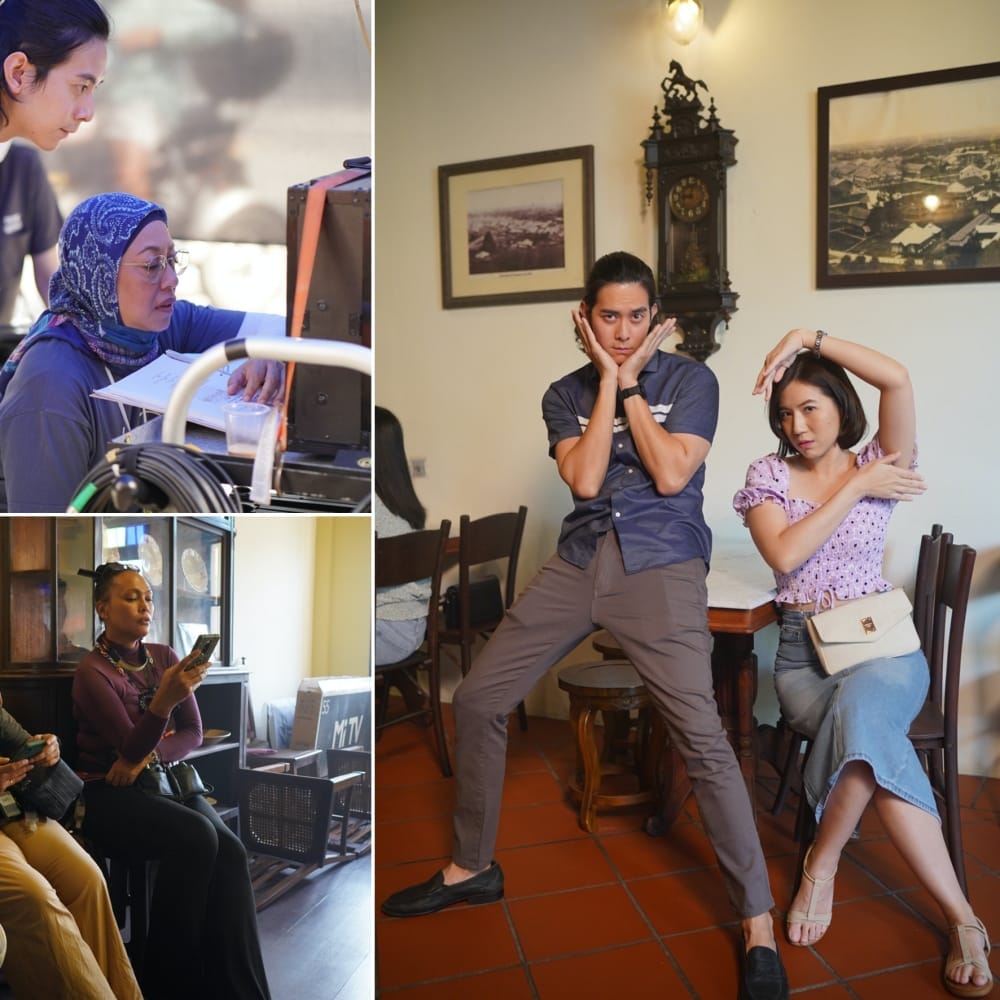
Behind the scenes, with (far right) Wilson Lee & Pauline Tan.
Next is Alex (Wilson Lee), the rebellious second child who more or less gets to do whatever he wants because he doesn’t have to care about his father’s directives simply because he isn’t the first-born. A luxury that Ruby (Pauline Tan), the affectionate sister, doesn’t have because she is the only daughter. In spite of being an adult, her life is still tethered to what Choo feels best. It’s the Asian dilemma–no matter how old we get, our parents will always hold sway over whatever major decisions we have to make.
The Heart Of The Film
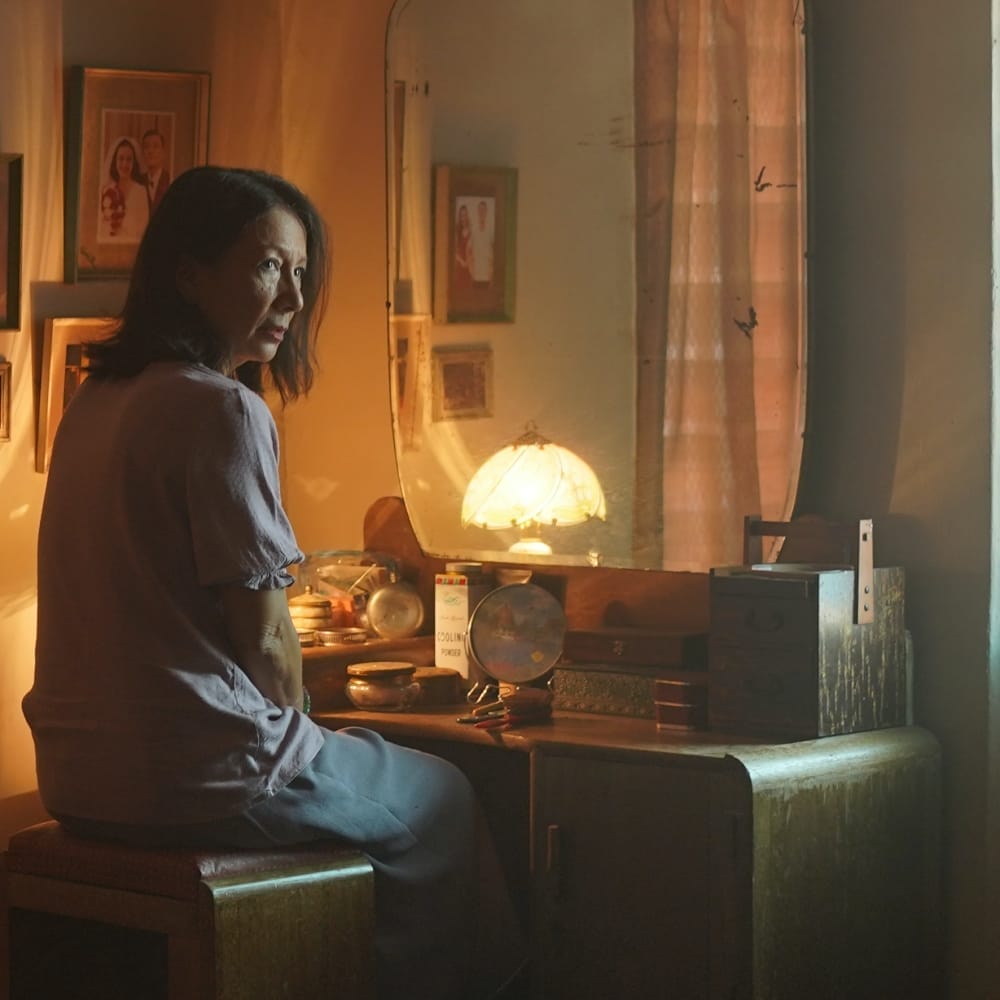
The formidable Susan Lankester
But the very heart of this film is Aileen, played by Susan Lankester in one of her best roles yet. Aileen is a former beauty queen, who fell in love with Choo when he was just a humble lantern-maker. She is the quintessential mother, who sacrificed her personal dreams so she could build a family, and you know that she wouldn’t want it any other way. She is happy–not just content, but actually happy–though frustrations continue to build under her calm surface as she sees the effects her husband’s iron hand has on her brood.
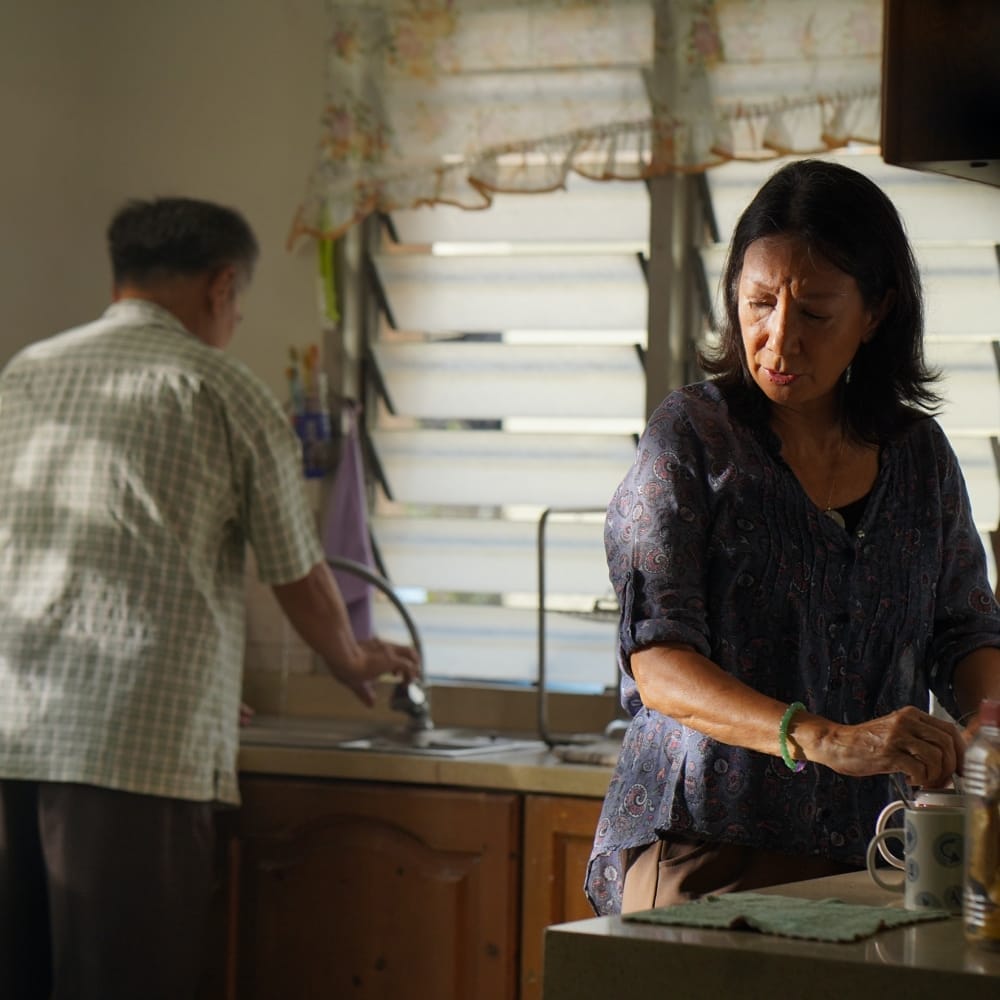
Husband and wife.
We know people like this. We could very well be people like this. And it’s uncanny that we rarely get to see this depicted on the big screen. Just a seemingly simple slice of middle-class Malaysian life, rife with unspoken complexities and buried emotions. It’s like everybody in the Choo household is just waiting to explode as they are forced to go through the motions because there’s not much that they can do if the headstrong leader of the family continues to be stony and unbothered.
That we become invested in the fates of this family is due to the chemistry between the cast. The best scenes are always when the family interacts with one another, whether it’s parent and child, or between the bickering siblings, which at times provide comic relief if not heightened drama.
RAIN TOWN – Breath Of Fresh Air
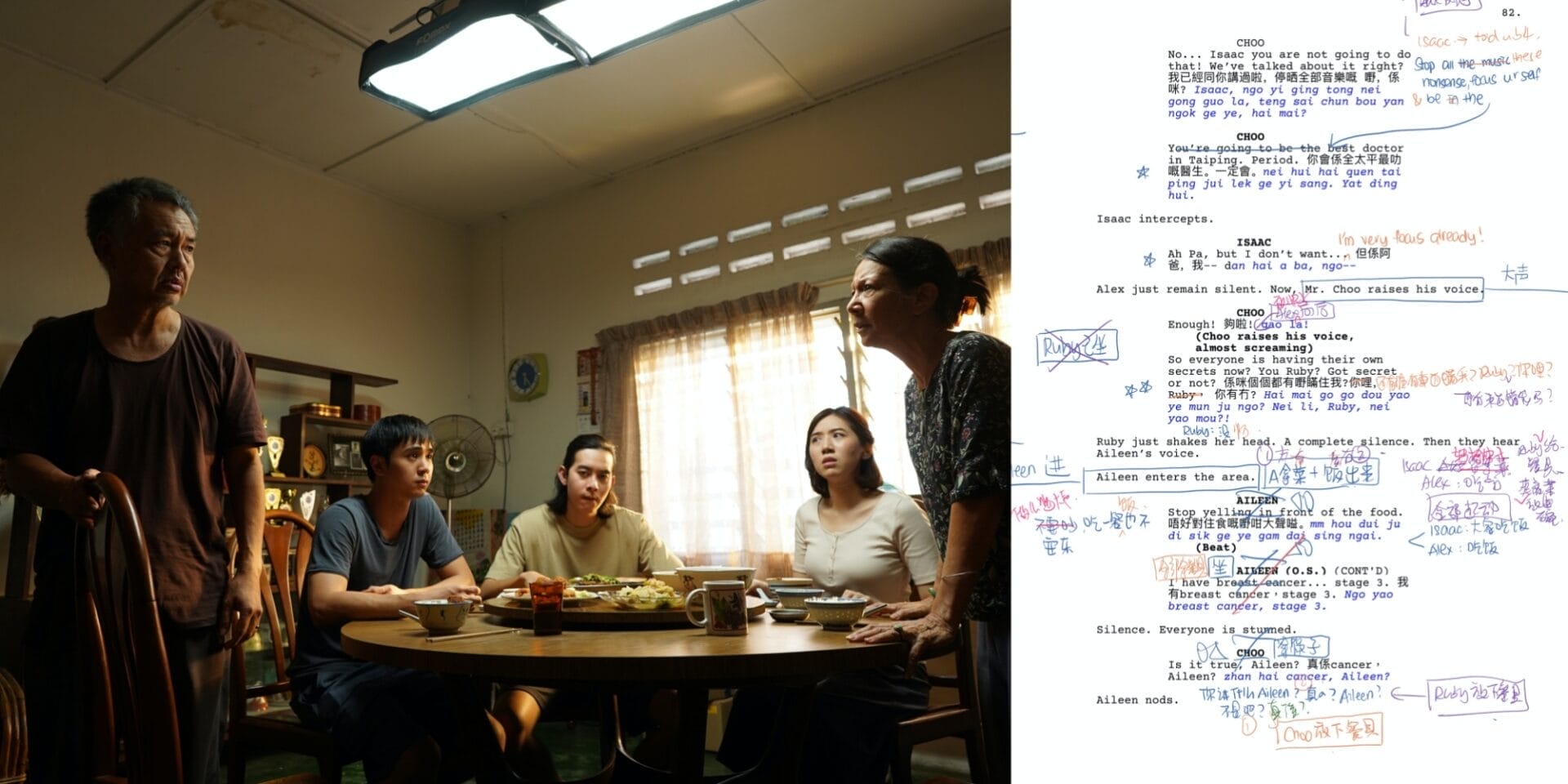
Family drama.
Though Chew Kin Wah and Fabian Loo are among the stand-outs, Susan Lankester deserves the highest praise. She plays Aileen with a quiet strength, free from histrionics. She is the centre of the tornado whirling around her. The beauty of her performance is in its subtlety, how everything that she needs to convey is through her face. The smile, the crease of the brow, the stare, the resignation, the pain.
That pain becomes inescapable when an unexpected tragedy befalls the family, and instead of bringing them closer together, it threatens to tear their bonds further apart. How will the Choo family cope? And therein lies one misgiving with regards to this film. The challenge with doing a simple story as close to real life as possible is that, no matter how fantastical, it needs to be believable, so that the stakes would then make sense. As convincing as the acting is all around, one character development for Isaac isn’t. Towards the end of the film, by accelerating his downward spiral to just three months, the story then veers dangerously into cerekarama territory, when plot convenience renders the believability factor somewhat implausible.
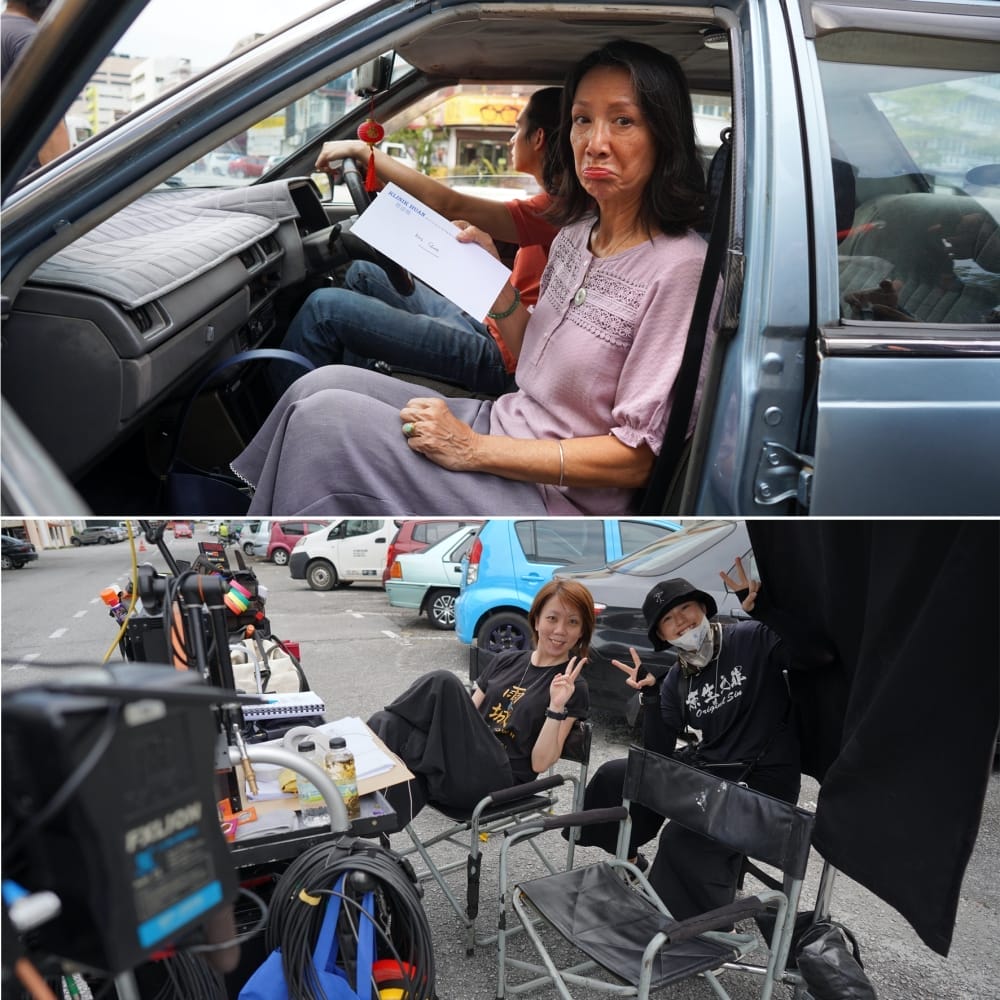
Behind the scenes of RAIN TOWN, shot in Taiping.
Nevertheless, in spite of that flaw, Rain Town is a breath of fresh air in the Malaysian film landscape. As audiences, we don’t care if a film is a “simple story”. What we value is great storytelling, even more so when it’s one that is reflective of our society and who we are as Malaysians. Because there is so very little of that in cinemas now. Here’s hoping that Rain Town will help pave the way for more of such films.
Produced by Current Pictures with dialogue mainly in Cantonese and local dialects, RAIN TOWN has extended its run until 10th March 2024. Be sure to catch it at a cinema near you.
abd. aziz draim
Currently the creative director of BAZAAR, Aziz has been helming architecture, fashion, and design magazines for two decades now, and he’s been doing it in two languages to boot. Citing Rei Kawakubo, Vivienne Westwood and Jean Paul Gaultier as his earliest fashion gurus, this amateur poet believes that nobody deserves an ugly pair of shoes.



